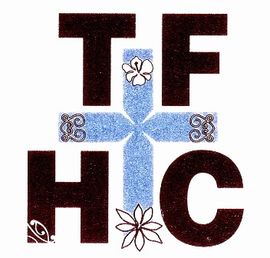Central Auckland > GPs / Accident & Urgent Medical Care > National Hauora Coalition >
Tamaki Family Health Centre
General Practice (GP) Service
Today
Description
The Tamaki Family Health Centre has been providing personalised healthcare to families in the Panmure and Glen Innes area as well as the wider Auckland area since 1986. We are a low cost practice enabling you to access quailty care at a low cost. We are also an authorised yellow fever vaccination centre and are able to offer comprehensive travel health advice and vaccinations.
We have a patient portal via ManageMyHealth. Please ask at the desk to enrol.
Our surgery is located opposite the Mt Wellington Library on Pilkington Road, Panmure.
Extra services available include:
- Counselling services with David and Jean Moore (including STEPS programme for men).
- Minor surgery (including moles, skin lumps and bumps.
- Travel medicine (we are an authorised YELLOW FEVER vaccination centre).
- Nurse-led clinics for cervical smears, women's health and diabetic management.
- Minor trauma - cuts, burns, sprains, simple fractures, etc.
Doctors
-
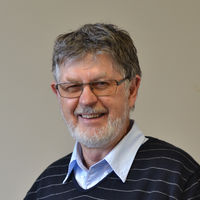
Dr John Clark
General Practitioner - Vocationally Registered
-
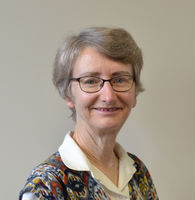
Dr Jane Henrys
General Practitioner - Vocationally Registered
-
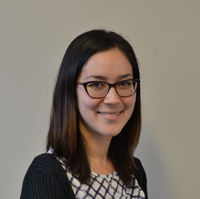
Dr Alisa Hersche
General Practitioner - Vocationally Registered (Currently on maternity leave)
-
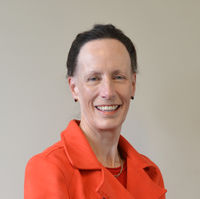
Dr Adrienne Mills
General Practitioner - Vocationally Registered
-

Dr Paul Park
General Practitioner - Vocationally Registered
-
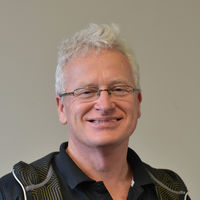
Dr Graham Sewell
General Practitioner - Vocationally Registered
-

Dr Eli Shaul
General Practitioner
Ages
Child / Tamariki, Youth / Rangatahi, Adult / Pakeke, Older adult / Kaumātua
How do I access this service?
Contact us
You can contact us by phoning 5273344 or via email preid@tfhc.co.nz or on our website www.tfhc.co.nz
You can also enrol on the ManageMyHealth app. Contact reception at 5273344 to enrol.
Walk in
We should be able to fit in urgent walk-ins but would prefer if you could ring ahead on 5273344
Make an appointment
You can make an appointment by ringing 5273344, or via email preid.tfhc.co.nz
Website / App
Our alternate website is www.tfhc.co.nz
Enrolled patients
Enrolling new patients
Fees
Enrolled Patient Fees
| Age Range | Without CSC | With CSC |
|---|---|---|
| Under 6 years | Free | Free |
| 6 to 13 years | Free | Free |
| 14 to 17 years | $13.00 | $13.00 |
| 18 to 24 years | $29.00 | $19.00 |
| 25 to 44 years | $29.00 | $19.00 |
| 45 to 64 years | $29.00 | $19.00 |
| 65+ years | $29.00 | $19.00 |
Non-enrolled patients:
Under 6yrs - free
7yrs to 18yrs - $30 ($20 for CSC card holders)
Over 18yrs - $70 ($35 for CSC card holders)
Additional charges for materials and extra services will be added
Travel consultations - may be up to $30 on top of normal consultation.
Hours
| Mon – Fri | 8:30 AM – 5:00 PM |
|---|
After hours please phone (09) 527 3344. For all urgent after hours care go to your nearest accident and emergency clinic. The closest A & E to Tamaki Family Health Centre is at Lunn Ave White Cross .
Public Holidays: Closed Waitangi Day (6 Feb), Good Friday (3 Apr), Easter Sunday (5 Apr), Easter Monday (6 Apr), ANZAC Day (observed) (27 Apr), King's Birthday (1 Jun), Matariki (10 Jul), Labour Day (26 Oct), Auckland Anniversary (1 Feb).
Preferred urgent care clinic out of hours: White Cross Lunn Ave - Urgent Care & GP.
Languages Spoken
English, Tagalog, Cebuano, Korean, Japanese
Services Provided
Immunisation is the safest and most effective way to provide protection for you and your tamariki’s health. For more information view the NZ immunisation schedule. Vaccinations provided free of charge for enrolled patients: Gardasil (human papillomavirus (HPV) vaccine for young women) Prevenar (Pneumococcal conjugate vaccine (PCV) for babies) Influenza vaccine for chronically ill patients (e.g. asthmatics and diabetics) as well as enrolled patients who are pregnant or aged 65yrs and over Boostrix for women in late pregnancy. Covid - 19 vaccinations. Shingrix for Shingles(only when a person is 65yrs old). Non-funded vaccinations: Pneumovax Mencevax (for meningitis) Japanese Encephalitis Hepatitis A and B Typhoid Rabies Yellow Fever
Immunisation is the safest and most effective way to provide protection for you and your tamariki’s health. For more information view the NZ immunisation schedule. Vaccinations provided free of charge for enrolled patients: Gardasil (human papillomavirus (HPV) vaccine for young women) Prevenar (Pneumococcal conjugate vaccine (PCV) for babies) Influenza vaccine for chronically ill patients (e.g. asthmatics and diabetics) as well as enrolled patients who are pregnant or aged 65yrs and over Boostrix for women in late pregnancy. Covid - 19 vaccinations. Shingrix for Shingles(only when a person is 65yrs old). Non-funded vaccinations: Pneumovax Mencevax (for meningitis) Japanese Encephalitis Hepatitis A and B Typhoid Rabies Yellow Fever
- Pregnancy vaccinations
- Childhood immunisation programme
- 45 year old vaccinations
- 65 year old vaccinations
- Adult flu vaccine
- Child flu vaccine
- Diphtheria / Tetanus / Pertussis (whooping cough) vaccine
- Travel vaccinations
- Meningococcal vaccine
- Measles / Mumps / Rubella (MMR) vaccine
- Human Papillomavirus (HPV) vaccine
- Shingles vaccine
- COVID-19 vaccination and boosters
- Catch-up missed vaccinations
- Respiratory syncytial virus (RSV) vaccine
- Privately funded vaccinations
Immunisation is the safest and most effective way to provide protection for you and your tamariki’s health. For more information view the NZ immunisation schedule.
Vaccinations provided free of charge for enrolled patients:
- Gardasil (human papillomavirus (HPV) vaccine for young women)
- Prevenar (Pneumococcal conjugate vaccine (PCV) for babies)
- Influenza vaccine for chronically ill patients (e.g. asthmatics and diabetics) as well as enrolled patients who are pregnant or aged 65yrs and over
- Boostrix for women in late pregnancy.
- Covid - 19 vaccinations.
- Shingrix for Shingles(only when a person is 65yrs old).
Non-funded vaccinations:
- Pneumovax
- Mencevax (for meningitis)
- Japanese Encephalitis
- Hepatitis A and B
- Typhoid
- Rabies
- Yellow Fever
Your GP's surgery is far more than a place to go when you are feeling unwell and needing a quick cure. The doctor who sees you has gone through an extensive medical training to equip her or him to help children and adults of all ages with a range of physical and emotional difficulties. GPs are at the centre of the healthcare hub and will be aware of services and expertise that are available locally and further-a-field. GPs are also aware of the link that stress and unhappy life events have on physical health so know when to suggest a talking therapy rather than medication.
Your GP's surgery is far more than a place to go when you are feeling unwell and needing a quick cure. The doctor who sees you has gone through an extensive medical training to equip her or him to help children and adults of all ages with a range of physical and emotional difficulties. GPs are at the centre of the healthcare hub and will be aware of services and expertise that are available locally and further-a-field. GPs are also aware of the link that stress and unhappy life events have on physical health so know when to suggest a talking therapy rather than medication.
Your GP's surgery is far more than a place to go when you are feeling unwell and needing a quick cure. The doctor who sees you has gone through an extensive medical training to equip her or him to help children and adults of all ages with a range of physical and emotional difficulties. GPs are at the centre of the healthcare hub and will be aware of services and expertise that are available locally and further-a-field. GPs are also aware of the link that stress and unhappy life events have on physical health so know when to suggest a talking therapy rather than medication.
Health screening tests check for health conditions or early warning signs of disease.
Health screening tests check for health conditions or early warning signs of disease.
- Cervical screening
Health screening tests check for health conditions or early warning signs of disease.
Each GP surgery or primary care practice will have its own procedure for repeat prescribing but the following rules are common to most, if not all. Patients who are well-known to the practice who have a stable condition like asthma, hypertension or diabetes could be allowed to get a repeat prescription for up to six months. Repeat prescriptions are never given to patients who are not known to the practice and there is probably a blanket ban on repeats for narcotics and other drugs that could be misused as doctors are expected to monitor these drugs carefully.
Each GP surgery or primary care practice will have its own procedure for repeat prescribing but the following rules are common to most, if not all. Patients who are well-known to the practice who have a stable condition like asthma, hypertension or diabetes could be allowed to get a repeat prescription for up to six months. Repeat prescriptions are never given to patients who are not known to the practice and there is probably a blanket ban on repeats for narcotics and other drugs that could be misused as doctors are expected to monitor these drugs carefully.
Each GP surgery or primary care practice will have its own procedure for repeat prescribing but the following rules are common to most, if not all. Patients who are well-known to the practice who have a stable condition like asthma, hypertension or diabetes could be allowed to get a repeat prescription for up to six months. Repeat prescriptions are never given to patients who are not known to the practice and there is probably a blanket ban on repeats for narcotics and other drugs that could be misused as doctors are expected to monitor these drugs carefully.
Sometimes your doctor needs to take a sample of blood or urine either to discover what is wrong with you or to measure something in your blood so that the right medication is given to you. These tests could be anything from blood sugar to a full blood count or a sample of tissue to test for cancer. While urine can generally be tested in the surgery, blood and other specimens are usually sent away for testing at a laboratory. Most results come back within 48 hours unless a very rare test is needed which has to go to a specialist lab further away when it might take a little longer. We will make every effort to contact you if there is a significant test result. If you haven't heard from us and you'd like to know the result, please call the clinic and speak to the phone nurse.
Sometimes your doctor needs to take a sample of blood or urine either to discover what is wrong with you or to measure something in your blood so that the right medication is given to you. These tests could be anything from blood sugar to a full blood count or a sample of tissue to test for cancer. While urine can generally be tested in the surgery, blood and other specimens are usually sent away for testing at a laboratory. Most results come back within 48 hours unless a very rare test is needed which has to go to a specialist lab further away when it might take a little longer. We will make every effort to contact you if there is a significant test result. If you haven't heard from us and you'd like to know the result, please call the clinic and speak to the phone nurse.
Sometimes your doctor needs to take a sample of blood or urine either to discover what is wrong with you or to measure something in your blood so that the right medication is given to you. These tests could be anything from blood sugar to a full blood count or a sample of tissue to test for cancer.
While urine can generally be tested in the surgery, blood and other specimens are usually sent away for testing at a laboratory. Most results come back within 48 hours unless a very rare test is needed which has to go to a specialist lab further away when it might take a little longer.
We will make every effort to contact you if there is a significant test result. If you haven't heard from us and you'd like to know the result, please call the clinic and speak to the phone nurse.
All women and people with a cervix aged 25 – 69 who have ever had intimate skin-to-skin contact or been sexually active should have regular cervical screening. This includes women who have been immunised against HPV. Together, regular screening and HPV immunisation provide the best protection against cervical cancer. There are now more options for how you have cervical screening done: a simple vaginal swab test for HPV, either done yourself or with help from a healthcare professional a cervical sample taken by a healthcare professional (used to be known as a smear test). Talk with your healthcare provider to decide which option is best for you. If HPV is found, you may need to have a follow-up test or be referred directly for colposcopy. If you’ve not yet had HPV testing, you should be screened 3 years after your last test (or 1 year if immune deficient). Once you have had an HPV test, and providing HPV is not found, your next screening will be in 5 years (or 3 years if immune deficient). For more information: Cervical screening | Time to Screen - National Screening Unit Trained nurses are available to perform routine cervical smears free of charge. When a cervical smear is performed by a doctor, there will be an extra fee charged.
All women and people with a cervix aged 25 – 69 who have ever had intimate skin-to-skin contact or been sexually active should have regular cervical screening. This includes women who have been immunised against HPV. Together, regular screening and HPV immunisation provide the best protection against cervical cancer. There are now more options for how you have cervical screening done: a simple vaginal swab test for HPV, either done yourself or with help from a healthcare professional a cervical sample taken by a healthcare professional (used to be known as a smear test). Talk with your healthcare provider to decide which option is best for you. If HPV is found, you may need to have a follow-up test or be referred directly for colposcopy. If you’ve not yet had HPV testing, you should be screened 3 years after your last test (or 1 year if immune deficient). Once you have had an HPV test, and providing HPV is not found, your next screening will be in 5 years (or 3 years if immune deficient). For more information: Cervical screening | Time to Screen - National Screening Unit Trained nurses are available to perform routine cervical smears free of charge. When a cervical smear is performed by a doctor, there will be an extra fee charged.
All women and people with a cervix aged 25 – 69 who have ever had intimate skin-to-skin contact or been sexually active should have regular cervical screening. This includes women who have been immunised against HPV. Together, regular screening and HPV immunisation provide the best protection against cervical cancer.
There are now more options for how you have cervical screening done:
- a simple vaginal swab test for HPV, either done yourself or with help from a healthcare professional
- a cervical sample taken by a healthcare professional (used to be known as a smear test).
Talk with your healthcare provider to decide which option is best for you.
If HPV is found, you may need to have a follow-up test or be referred directly for colposcopy.
If you’ve not yet had HPV testing, you should be screened 3 years after your last test (or 1 year if immune deficient). Once you have had an HPV test, and providing HPV is not found, your next screening will be in 5 years (or 3 years if immune deficient).
For more information: Cervical screening | Time to Screen - National Screening Unit
Trained nurses are available to perform routine cervical smears free of charge.
When a cervical smear is performed by a doctor, there will be an extra fee charged.
Another service offered to you at your GP surgery (primary care practice) is advice and immunisation before you go to another country. While you are likely to have the immunisations needed to live in New Zealand, there may be other injections you need to protect yourself before going for example to Africa or South America. In some places you will need protection from rabies or malaria. Yellow fever vaccinations are only available at approved centres; please click here to view the centres in New Zealand. Your doctor will be able to tell you what diseases you will need to be protected from in any named country and advise you on other medical matters. The Tamaki Family Health Centre is an approved Yellow Fever Vaccination Centre. If you have been seen by a doctor at another clinic and are recommended to come to the Tamaki Family Centre for your travel vaccinations, you will need to make an appointment for a travel consultation with Dr Clark before any vaccinations are given. Please bring a record of your past vaccinations with you.
Another service offered to you at your GP surgery (primary care practice) is advice and immunisation before you go to another country. While you are likely to have the immunisations needed to live in New Zealand, there may be other injections you need to protect yourself before going for example to Africa or South America. In some places you will need protection from rabies or malaria. Yellow fever vaccinations are only available at approved centres; please click here to view the centres in New Zealand. Your doctor will be able to tell you what diseases you will need to be protected from in any named country and advise you on other medical matters. The Tamaki Family Health Centre is an approved Yellow Fever Vaccination Centre. If you have been seen by a doctor at another clinic and are recommended to come to the Tamaki Family Centre for your travel vaccinations, you will need to make an appointment for a travel consultation with Dr Clark before any vaccinations are given. Please bring a record of your past vaccinations with you.
Another service offered to you at your GP surgery (primary care practice) is advice and immunisation before you go to another country. While you are likely to have the immunisations needed to live in New Zealand, there may be other injections you need to protect yourself before going for example to Africa or South America. In some places you will need protection from rabies or malaria. Yellow fever vaccinations are only available at approved centres; please click here to view the centres in New Zealand. Your doctor will be able to tell you what diseases you will need to be protected from in any named country and advise you on other medical matters.
The Tamaki Family Health Centre is an approved Yellow Fever Vaccination Centre. If you have been seen by a doctor at another clinic and are recommended to come to the Tamaki Family Centre for your travel vaccinations, you will need to make an appointment for a travel consultation with Dr Clark before any vaccinations are given. Please bring a record of your past vaccinations with you.
Primary care practices offer a range of services and are able to deal with most minor accident care. If they are not able to deal with an injury they will refer on to the appropriate service. We are equipped to deal with cuts and gashes, sprains and soft tissue injuries, burns and minor fractures. If you have received initial treatment at an out-of-hours service, check with us - we may be able to complete the follow-up care needed.
Primary care practices offer a range of services and are able to deal with most minor accident care. If they are not able to deal with an injury they will refer on to the appropriate service. We are equipped to deal with cuts and gashes, sprains and soft tissue injuries, burns and minor fractures. If you have received initial treatment at an out-of-hours service, check with us - we may be able to complete the follow-up care needed.
Primary care practices offer a range of services and are able to deal with most minor accident care. If they are not able to deal with an injury they will refer on to the appropriate service.
We are equipped to deal with cuts and gashes, sprains and soft tissue injuries, burns and minor fractures. If you have received initial treatment at an out-of-hours service, check with us - we may be able to complete the follow-up care needed.
Minor surgery is commonly provided in primary care practices, providing fast, competent removal and biopsies of skin lesions. Other services include cosmetic work such as removal of benign moles and skin tags. Ingrown toenail surgery is also commonly provided. These conditions do not need to be referred to a hospital, perhaps saving you a long wait or a cancelled appointment when a more serious case takes priority. We are equipped to deal with most lumps and bumps as well as suspicious looking moles.
Minor surgery is commonly provided in primary care practices, providing fast, competent removal and biopsies of skin lesions. Other services include cosmetic work such as removal of benign moles and skin tags. Ingrown toenail surgery is also commonly provided. These conditions do not need to be referred to a hospital, perhaps saving you a long wait or a cancelled appointment when a more serious case takes priority. We are equipped to deal with most lumps and bumps as well as suspicious looking moles.
Minor surgery is commonly provided in primary care practices, providing fast, competent removal and biopsies of skin lesions. Other services include cosmetic work such as removal of benign moles and skin tags. Ingrown toenail surgery is also commonly provided.
These conditions do not need to be referred to a hospital, perhaps saving you a long wait or a cancelled appointment when a more serious case takes priority.
We are equipped to deal with most lumps and bumps as well as suspicious looking moles.
Liquid nitrogen is a fast, effective treatment provided in many practices to treat viral warts, sun damaged skin, skin tags and many benign cosmetic lesions. It comes in a container with a nozzle and is usually applied by swab or spray. Often one treatment is all that is needed but sometimes it may need repeating after two weeks. Because it cannot be stored for too long, you will often find that your GP will treat a number of patients one after the other. For more information click here.
Liquid nitrogen is a fast, effective treatment provided in many practices to treat viral warts, sun damaged skin, skin tags and many benign cosmetic lesions. It comes in a container with a nozzle and is usually applied by swab or spray. Often one treatment is all that is needed but sometimes it may need repeating after two weeks. Because it cannot be stored for too long, you will often find that your GP will treat a number of patients one after the other. For more information click here.
Liquid nitrogen is a fast, effective treatment provided in many practices to treat viral warts, sun damaged skin, skin tags and many benign cosmetic lesions. It comes in a container with a nozzle and is usually applied by swab or spray. Often one treatment is all that is needed but sometimes it may need repeating after two weeks.
Because it cannot be stored for too long, you will often find that your GP will treat a number of patients one after the other.
For more information click here.
LARC methods are very effective at preventing unplanned pregnancy and are “fit and forget” forms of contraception – you don’t need to remember them every day or every month. LARC methods: Intrauterine Contraceptive Devices (IUCD or IUD) are inserted through the cervix into a woman’s uterus. IUCDs may be either hormonal (Mirena® or Jaydess® ) or non-hormonal (copper IUCD). Jadelle® is a hormone-releasing implant that is inserted just under the skin of the upper arm. Depending on the type of device, it will need to be changed after between three and ten years. Read more about LARC methods here Various doctors in our clinic insert/remove IUCD's and Jadelles. Please phone reception to make an appointment with the appropriate doctor.
LARC methods are very effective at preventing unplanned pregnancy and are “fit and forget” forms of contraception – you don’t need to remember them every day or every month. LARC methods: Intrauterine Contraceptive Devices (IUCD or IUD) are inserted through the cervix into a woman’s uterus. IUCDs may be either hormonal (Mirena® or Jaydess® ) or non-hormonal (copper IUCD). Jadelle® is a hormone-releasing implant that is inserted just under the skin of the upper arm. Depending on the type of device, it will need to be changed after between three and ten years. Read more about LARC methods here Various doctors in our clinic insert/remove IUCD's and Jadelles. Please phone reception to make an appointment with the appropriate doctor.
LARC methods are very effective at preventing unplanned pregnancy and are “fit and forget” forms of contraception – you don’t need to remember them every day or every month. LARC methods:
- Intrauterine Contraceptive Devices (IUCD or IUD) are inserted through the cervix into a woman’s uterus. IUCDs may be either hormonal (Mirena® or Jaydess® ) or non-hormonal (copper IUCD).
- Jadelle® is a hormone-releasing implant that is inserted just under the skin of the upper arm.
Depending on the type of device, it will need to be changed after between three and ten years.
Read more about LARC methods here
Various doctors in our clinic insert/remove IUCD's and Jadelles.
Please phone reception to make an appointment with the appropriate doctor.
An ECG is a recording of your heart's electrical activity. Electrode patches are attached to your skin to measure the electrical impulses given off by your heart. The result is a trace that can be read by a doctor. It can give information of previous heart attacks or problems with the heart rhythm.
An ECG is a recording of your heart's electrical activity. Electrode patches are attached to your skin to measure the electrical impulses given off by your heart. The result is a trace that can be read by a doctor. It can give information of previous heart attacks or problems with the heart rhythm.
An ECG is a recording of your heart's electrical activity. Electrode patches are attached to your skin to measure the electrical impulses given off by your heart. The result is a trace that can be read by a doctor. It can give information of previous heart attacks or problems with the heart rhythm.
Spirometry is a tool that measures how effectively your lungs are working. It can show how much air lungs are able to hold (their volume) and how much air can be breathed in and out (inhaled and exhaled) which is called flow. It can be used to diagnose problems of breathing and monitor the usefulness of treatment. The test involves taking a deep breath in and blowing out as hard as you can into a hollow tube attached to a spirometer machine. You will be asked to do the test several times. The whole process takes 15 - 30 minutes depending on whether you are given some inhaled medicine and asked to do it again to monitor if there is an improvement. Read more about Spirometry on the Healthify website Peak flow meter This is a small hand-held tube that can measure what is happening in your breathing tubes. You can have one at home and measure your peak flow by blowing into it as hard and fast as possible. You will be shown how to measure it and compare it with what you can blow when you are well as part of your asthma management plan if you think you are having an asthma attack. For more information view on the Healthify website
Spirometry is a tool that measures how effectively your lungs are working. It can show how much air lungs are able to hold (their volume) and how much air can be breathed in and out (inhaled and exhaled) which is called flow. It can be used to diagnose problems of breathing and monitor the usefulness of treatment. The test involves taking a deep breath in and blowing out as hard as you can into a hollow tube attached to a spirometer machine. You will be asked to do the test several times. The whole process takes 15 - 30 minutes depending on whether you are given some inhaled medicine and asked to do it again to monitor if there is an improvement. Read more about Spirometry on the Healthify website Peak flow meter This is a small hand-held tube that can measure what is happening in your breathing tubes. You can have one at home and measure your peak flow by blowing into it as hard and fast as possible. You will be shown how to measure it and compare it with what you can blow when you are well as part of your asthma management plan if you think you are having an asthma attack. For more information view on the Healthify website
Spirometry is a tool that measures how effectively your lungs are working. It can show how much air lungs are able to hold (their volume) and how much air can be breathed in and out (inhaled and exhaled) which is called flow. It can be used to diagnose problems of breathing and monitor the usefulness of treatment. The test involves taking a deep breath in and blowing out as hard as you can into a hollow tube attached to a spirometer machine. You will be asked to do the test several times. The whole process takes 15 - 30 minutes depending on whether you are given some inhaled medicine and asked to do it again to monitor if there is an improvement. Read more about Spirometry on the Healthify website
Peak flow meter This is a small hand-held tube that can measure what is happening in your breathing tubes. You can have one at home and measure your peak flow by blowing into it as hard and fast as possible. You will be shown how to measure it and compare it with what you can blow when you are well as part of your asthma management plan if you think you are having an asthma attack. For more information view on the Healthify website
All New Zealand children are entitled to 11 free health checks from birth to three years. The checks aim to ensure that children are growing and developing as well as possible. Included in the checks are clinical assessment, health education and family/whanau support. Baby checks are at birth and then at 24 hours, five days and around 2-4 weeks. Babies are weighed and measured to ensure that they are developing correctly. These sessions provide a great opportunity for parents to ask questions from an expert and have any problem addressed; difficulties with breastfeeding or sleep for example. They can also be used to discuss immunisations and vaccinations. These checks will be carried out by your lead maternity carer (LMC). Between the ages of 4-6 weeks and three years, there are seven core health checks available, typically these are around 4-6 weeks, 8-10 weeks, 3-4 months, 5-7 months, 9-12 months, 15-18 months and 2-3 years. These checks may be carried out by a Well Child Provider of your choice e.g. Plunket, Maori health provider, community nurse, a general practice team (doctor and practice nurse). Your LMC will be able to give you a list of Well Child Providers in your area. More information about Well Child services is available on the Ministry of Health website.
All New Zealand children are entitled to 11 free health checks from birth to three years. The checks aim to ensure that children are growing and developing as well as possible. Included in the checks are clinical assessment, health education and family/whanau support. Baby checks are at birth and then at 24 hours, five days and around 2-4 weeks. Babies are weighed and measured to ensure that they are developing correctly. These sessions provide a great opportunity for parents to ask questions from an expert and have any problem addressed; difficulties with breastfeeding or sleep for example. They can also be used to discuss immunisations and vaccinations. These checks will be carried out by your lead maternity carer (LMC). Between the ages of 4-6 weeks and three years, there are seven core health checks available, typically these are around 4-6 weeks, 8-10 weeks, 3-4 months, 5-7 months, 9-12 months, 15-18 months and 2-3 years. These checks may be carried out by a Well Child Provider of your choice e.g. Plunket, Maori health provider, community nurse, a general practice team (doctor and practice nurse). Your LMC will be able to give you a list of Well Child Providers in your area. More information about Well Child services is available on the Ministry of Health website.
All New Zealand children are entitled to 11 free health checks from birth to three years. The checks aim to ensure that children are growing and developing as well as possible. Included in the checks are clinical assessment, health education and family/whānau support.
Baby checks are at birth and then at 24 hours, five days and around 2-4 weeks. Babies are weighed and measured to ensure that they are developing correctly. These sessions provide a great opportunity for parents to ask questions from an expert and have any problem addressed; difficulties with breastfeeding or sleep for example. They can also be used to discuss immunisations and vaccinations. These checks will be carried out by your lead maternity carer (LMC).
Between the ages of 4-6 weeks and three years, there are seven core health checks available, typically these are around 4-6 weeks, 8-10 weeks, 3-4 months, 5-7 months, 9-12 months, 15-18 months and 2-3 years. These checks may be carried out by a Well Child Provider of your choice e.g. Plunket, Māori health provider, community nurse, a general practice team (doctor and practice nurse). Your LMC will be able to give you a list of Well Child Providers in your area.
More information about Well Child services is available on the Ministry of Health website.
Although we don't do the procedure in our clinic, we can refer you to one that does. There also may be some funding to subsidise the cost.
Although we don't do the procedure in our clinic, we can refer you to one that does. There also may be some funding to subsidise the cost.
Although we don't do the procedure in our clinic, we can refer you to one that does. There also may be some funding to subsidise the cost.
A patient portal is a secure online tool provided by GP practices that can allow convenient access to your health information as well as interaction with the practice e.g. booking appointments and requesting repeat prescriptions. Patient portals are available through ManageMyHealth. Please speak to reception if you would like to enrol.
A patient portal is a secure online tool provided by GP practices that can allow convenient access to your health information as well as interaction with the practice e.g. booking appointments and requesting repeat prescriptions. Patient portals are available through ManageMyHealth. Please speak to reception if you would like to enrol.
A patient portal is a secure online tool provided by GP practices that can allow convenient access to your health information as well as interaction with the practice e.g. booking appointments and requesting repeat prescriptions.
Patient portals are available through ManageMyHealth. Please speak to reception if you would like to enrol.
A virtual consultation is a way of having an appointment with your healthcare provider, but not in person. This is usually done via a video app or a phone call. For more detailed information about telehealth consultations, please see the guide from Healthify.
A virtual consultation is a way of having an appointment with your healthcare provider, but not in person. This is usually done via a video app or a phone call. For more detailed information about telehealth consultations, please see the guide from Healthify.
- In person consultation preferred, but virtual consultation provided as required
- Video consultations
- Phone consultations
A virtual consultation is a way of having an appointment with your healthcare provider, but not in person. This is usually done via a video app or a phone call. For more detailed information about telehealth consultations, please see the guide from Healthify.
Our GP practice has team members who work alongside your doctor and nurses to provide you with a range of mental wellbeing supports and tools. These team members may include Health Improvement Practitioners (HIPs), Health Coaches and Support Workers. View the following link for more information about wellbeing support in general practice and the national Access & Choice programme. Tamaki Family Health Centre offers a FREE HIP service. HIPs are experienced mental health clinicians who work with people of all ages and their whānau. They help people with any issues impacting on their health and wellbeing. Sessions are brief (15-30 minutes) and focus on what is important to you, today. At your first session you will get some strategies and a plan to start making some positive changes. There are no limits to how often you can see the HIP. They will work with you until you are making progress towards your goals. This may only take one session, but you can always come back and see them again if new issues come up.
Our GP practice has team members who work alongside your doctor and nurses to provide you with a range of mental wellbeing supports and tools. These team members may include Health Improvement Practitioners (HIPs), Health Coaches and Support Workers. View the following link for more information about wellbeing support in general practice and the national Access & Choice programme. Tamaki Family Health Centre offers a FREE HIP service. HIPs are experienced mental health clinicians who work with people of all ages and their whānau. They help people with any issues impacting on their health and wellbeing. Sessions are brief (15-30 minutes) and focus on what is important to you, today. At your first session you will get some strategies and a plan to start making some positive changes. There are no limits to how often you can see the HIP. They will work with you until you are making progress towards your goals. This may only take one session, but you can always come back and see them again if new issues come up.
Our GP practice has team members who work alongside your doctor and nurses to provide you with a range of mental wellbeing supports and tools. These team members may include Health Improvement Practitioners (HIPs), Health Coaches and Support Workers.
View the following link for more information about wellbeing support in general practice and the national Access & Choice programme.
Tamaki Family Health Centre offers a FREE HIP service.
HIPs are experienced mental health clinicians who work with people of all ages and their whānau. They help people with any issues impacting on their health and wellbeing.
Sessions are brief (15-30 minutes) and focus on what is important to you, today. At your first session you will get some strategies and a plan to start making some positive changes. There are no limits to how often you can see the HIP. They will work with you until you are making progress towards your goals. This may only take one session, but you can always come back and see them again if new issues come up.
Disability Assistance
Wheelchair access
Online Booking URL
Travel Directions
We are located in the Panmure Shopping area on Pilkington Road just up from the Panmure traffic lights opposite the Panmure Library on the corner of Clifton Court.
Public Transport
There is a bus stop and mobility parking outside the clinic on Pilkington Road and Panmure Railway Station is only 5 mins from the clinic.
There is a taxi rank across the road outside the public library.
Parking
Public parking is available across the road next to the library as well as further up Pilkington Rd opposite the fire station.
Website
Contact Details
2-4 Clifton Court, Panmure, Auckland
Central Auckland
-
Phone
(09) 527 3344
-
Fax
(09) 527 3545
Healthlink EDI
tamakihc
Website
2-4 Clifton Court
Panmure
Auckland
Auckland 1072
Street Address
2-4 Clifton Court
Panmure
Auckland
Auckland 1072
Postal Address
PO Box 14168
Panmure
Auckland 1741
Would you recommend this service to family & friends?
See ReviewsWas this page helpful?
This page was last updated at 12:50PM on October 22, 2025. This information is reviewed and edited by Tamaki Family Health Centre.

